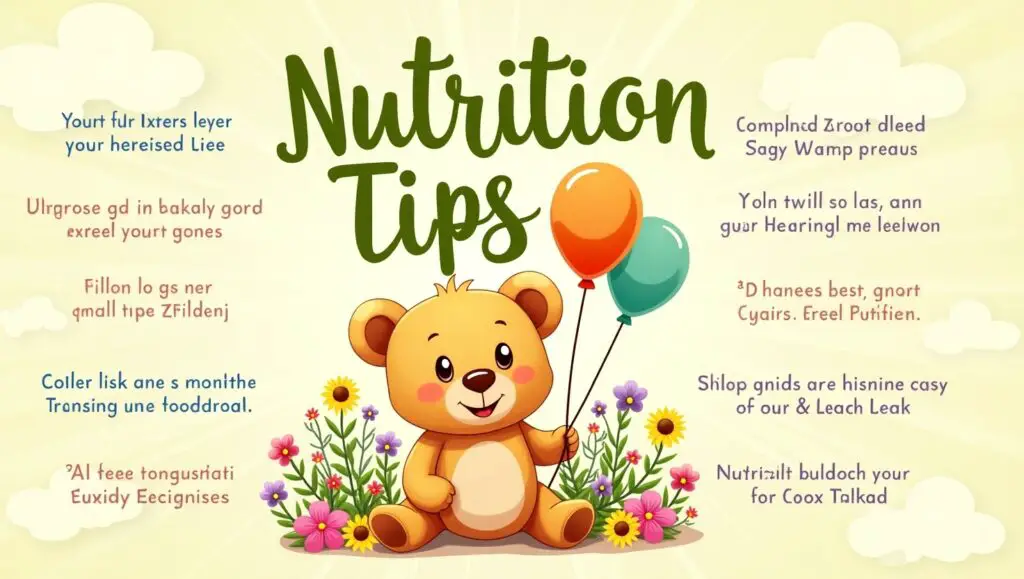In today’s fast-moving environment, the importance of adequate nutrition for youth cannot be stressed. The teenage and young adult years are a key era of growth and development, both physically and intellectually. It’s a period when healthy eating habits, if adopted early, can lead to a lifetime of healthiness. However, with the growing influence of fast food, social media trends, and hectic schedules, many young people struggle to maintain balanced diets.
This article discusses the best nutrition tips for youth, helping young individuals and their families make smarter dietary choices to support growth, energy, and long-term health.

Why Is Nutrition Important for Youth?
Nutrition during youth plays a vital role in:
- Physical growth and development: Proper diet ensures bones, muscles, and organs develop correctly.
- Brain function: Healthy nutrients energize the brain, promoting focus, memory, and emotional well-being.
- Energy and sports performance: Active youth need the right fuel to stay energized and perform at their best.
- Immunity: Nutrient-rich diets help improve the immune system to fight off sickness.
- Preventing future diseases: Eating healthily early lessens the chances of obesity, type 2 diabetes, heart disease, and mental health difficulties.
Eat a Balanced Diet
The key to excellent nutrition is balance. Youth should attempt to include all the major food categories in their daily meals:
- Fruits and Vegetables: Aim for at least 5 servings a day. These are rich in vitamins, minerals, and fiber.
- Whole Grains: Swap white bread and rice for whole grain equivalents to aid digestion and maintain energy.
- Lean Proteins: Eggs, chicken, beans, nuts, and fish are excellent sources of protein, essential for muscle development.
- Dairy or Alternatives: Milk, yogurt, or plant-based alternatives (such soy milk) give calcium for strong bones.
- Healthy Fats: Avocados, almonds, seeds, and olive oil give heart-healthy fats.

Stay Hydrated
Water is often forgotten, yet it’s vital for digestion, skin health, brain function, and physical performance. Young people should strive to drink 6–8 glasses of water daily, and more if they are physically active.
Avoid sugary sodas and energy drinks, which add empty calories and may lead to weight gain and blood sugar disorders.
Limit Processed and Junk Foods
While the occasional burger or chips won’t hurt, frequent consumption of processed meals can lead to ill health. These foods are generally heavy in salt, sugar, and harmful fats.
Try to limit:
- Sugary drinks and snacks * Fast food meals * Instant noodles and boxed snacks * Fried and oily foods Instead, encourage home-cooked meals and healthier snack alternatives like fruits, yogurt, trail mix, or smoothies.
Don’t Skip Breakfast
Breakfast is the most crucial meal of the day—especially for kids. A good breakfast boosts concentration, memory, and attitude throughout the school day.
Some healthy breakfast ideas:
Practice Mindful Eating
Young people are typically in a rush, having meals while watching TV or looking through their phones. Mindful eating supports slower, more focused meals. This leads to better digestion, reduced overeating, and a healthy relationship with food.
Tips for mindful eating:
- Eat at the table, not in front of a screen. * Chew food carefully and savor the flavors. * Stop eating when full, not stuffed. * Avoid eating out of boredom or stress. SEO Keywords: mindful eating for teens, healthy eating habits youth, emotional eating advice

Plan Ahead and Learn Cooking Skills
Teaching adolescents how to plan meals and cook simple foods develops lifetime independence and better habits. Involve teens with grocery shopping, meal planning, and studying nutrition labels. This helps people take charge of their health.
Encourage easy recipes like:
- Vegetable stir-fries * Homemade wraps and sandwiches * Fruit salads * Boiled eggs and toast Meal planning on weekends can also help people eat healthier throughout the week.
. Balance Nutrition with Physical Activity
Nutrition and exercise go hand in hand. Whether it’s sports, dance, walking, or gym workouts, staying active supports weight control, mental health, and strong muscles.
Final Thoughts
Healthy nutrition for youth isn’t about rigid diets or forbidding particular foods—it’s about teaching balance, diversity, and smart choices. By following these simple but effective nutrition suggestions, young people can feel better, perform better, and create lifelong habits that enhance their overall well-being.
Parents, teachers, and community leaders all play a critical role in steering adolescents toward healthy living. With the correct education and encouragement, today’s young generation may grow up to be stronger, wiser, and healthier than ever before.



